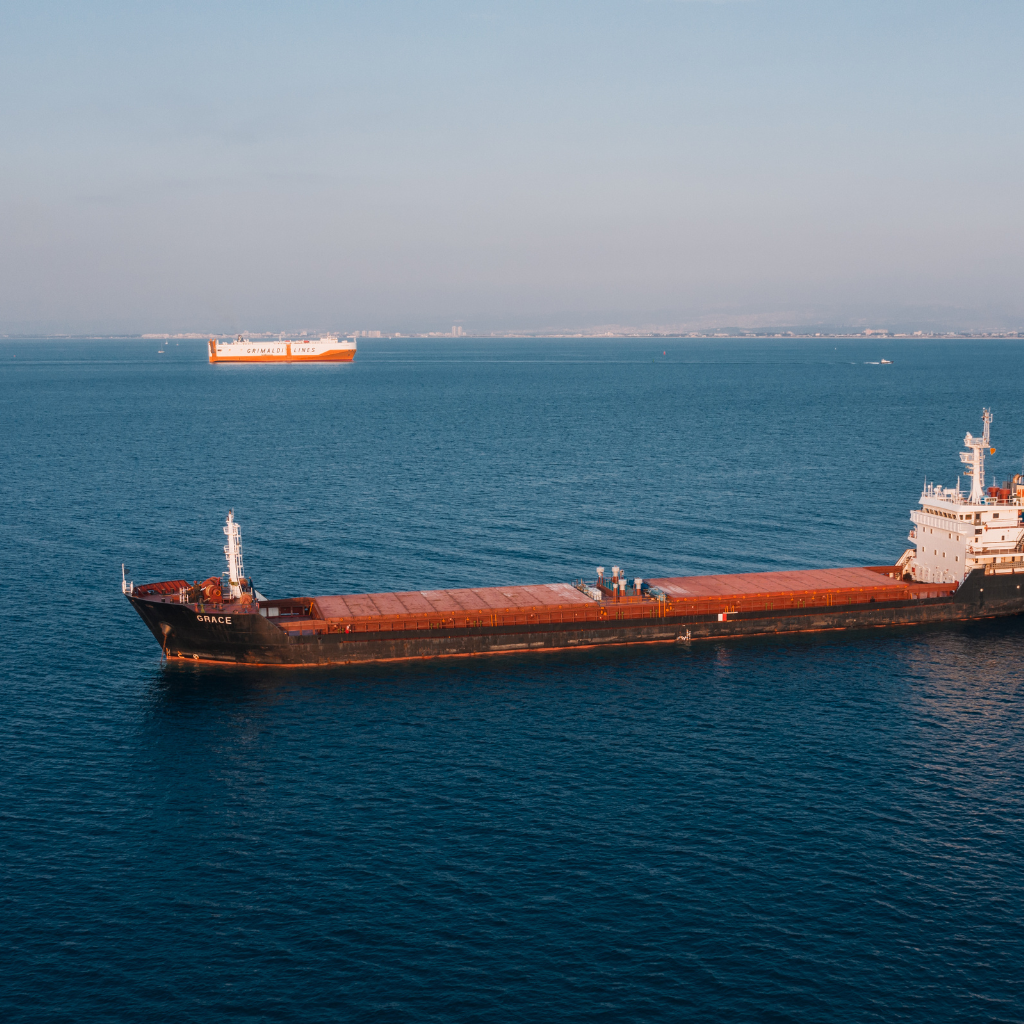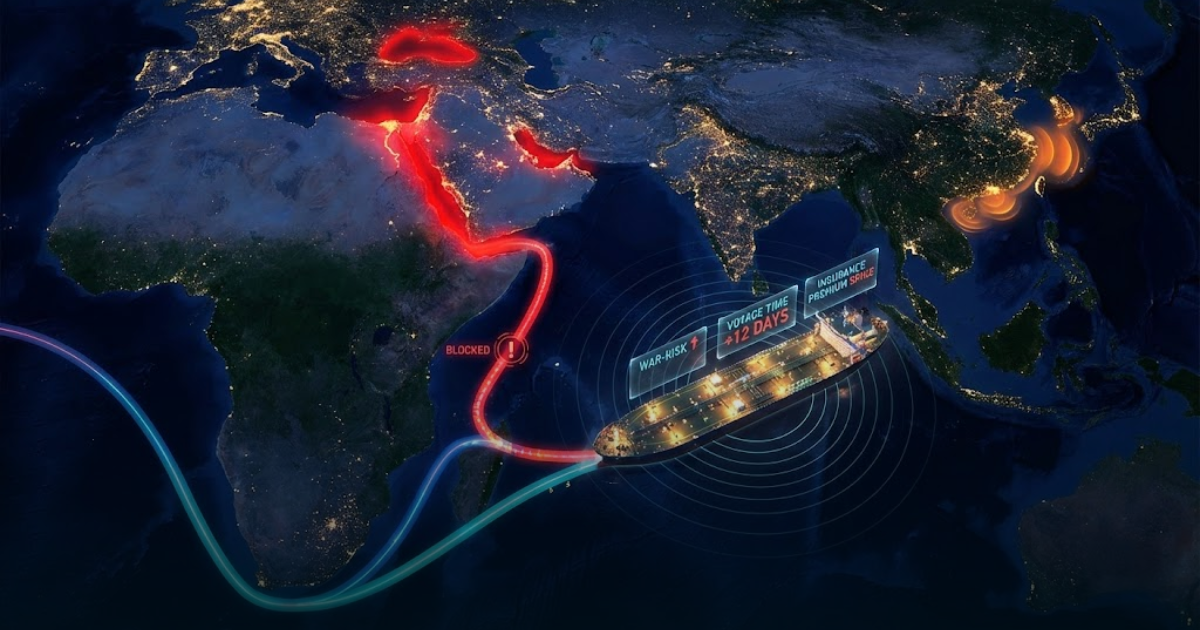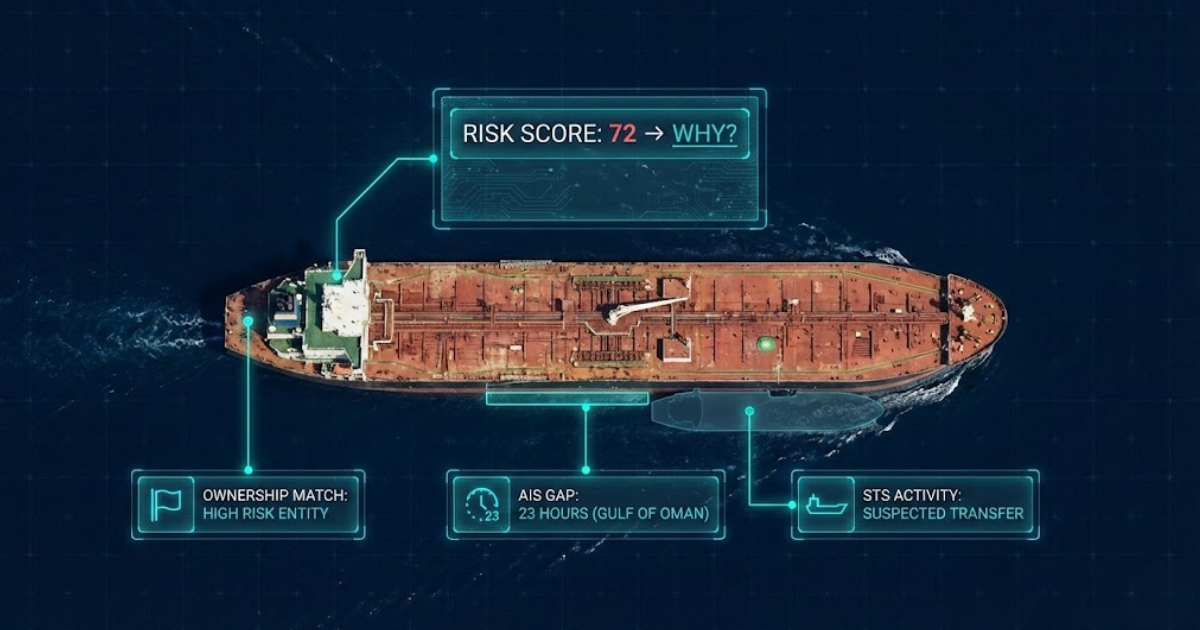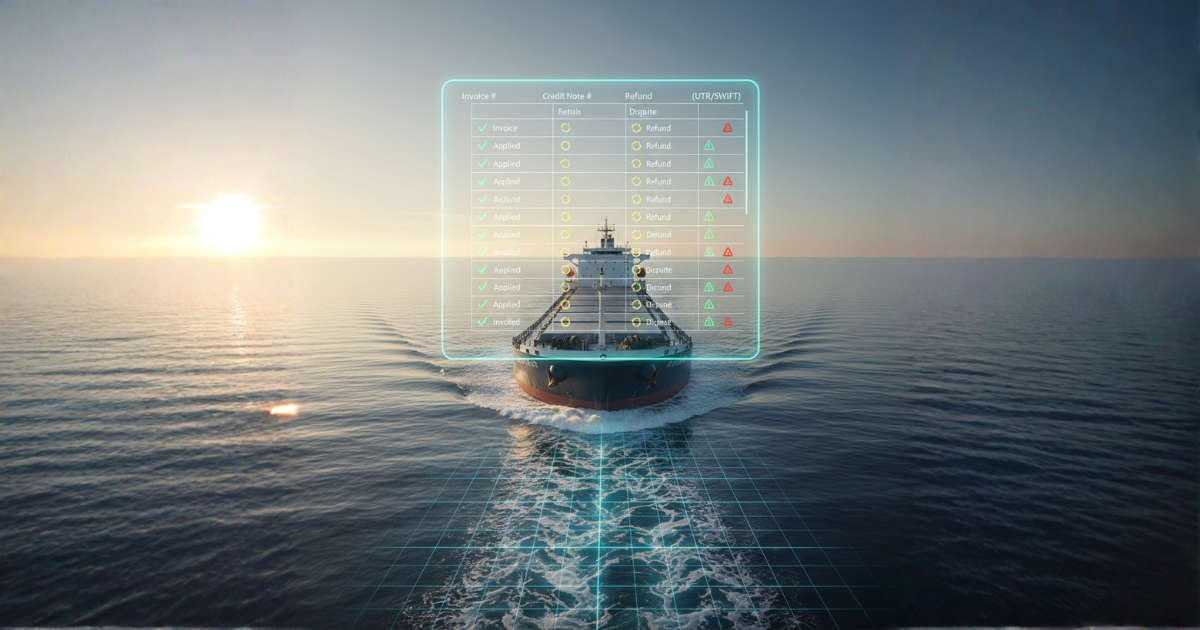How Geopolitical Fragmentation Is Reshaping Maritime Trade Lanes in 2025 - a researched analysis
2025 has become the year maritime trade stopped assuming “steady state” routes. Multiple simultaneous geopolitical shocks — Red Sea attacks, renewed...
Solutions Aligned with Maritime Roles
Model-Specific Business Solutions
Streamlined data insights
Optimized maritime voyage planning
Enhanced financial stability
Maritime-focused business banking
Access legal documents and policies.
Get solutions to all your questions.

In today’s maritime industry, efficiency is no longer just about fuel savings or faster turnarounds—it’s about how well your data, workflows, and decisions are connected. Yet many shipping companies still operate on patchwork systems: Excel files, legacy voyage management software, and separate accounting platforms that don’t talk to each other.
This fragmented approach slows down decision-making and creates blind spots that can be costly in a volatile market.
Data silos: Voyage data sits in one system, financials in another, compliance in yet another.
Manual reconciliation: Teams spend days linking invoices, bills, and voyage P&Ls.
Operational risk: Delayed insights mean missed opportunities and higher exposure to sanctions, compliance failures, or financial missteps.
A unified platform brings together chartering, operations, finance, and analytics into a single ecosystem. Instead of reconciling data manually, shipping companies get real-time visibility across every voyage and every dollar.
Key benefits include:
Operational visibility: One dashboard showing vessel schedules, voyages, and profit-and-loss breakdowns.
Financial clarity: Integrated receivables, payables, and credit insights for better cash flow control.
Compliance readiness: Automated sanctions screening and emissions calculators (CII, EU ETS).
Strategic agility: Faster decisions with real-time analytics on market rates, valuations, and risks.
Leading dry bulk and tanker operators are already adopting unified platforms to replace outdated VMS and disconnected finance systems. They’re not just saving time—they’re gaining a competitive edge in negotiations, risk management, and long-term planning.
Maritime shipping is at a crossroads. Those who continue to rely on patchwork systems will always play catch-up. Those who move to unified platforms will unlock efficiency, reduce risk, and position themselves for growth in a decarbonizing, digitizing industry.
At Marlo, we believe the future of shipping belongs to the connected.

2025 has become the year maritime trade stopped assuming “steady state” routes. Multiple simultaneous geopolitical shocks — Red Sea attacks, renewed...

Sanctions risk is now an operational risk for every ship operator. Recent enforcement guidance and high-profile enforcement actions show regulators...

1 | Types of “extra” cashflows you’ll see in shipping Shipping creates particular situations that commonly yield overpayments, credits or refunds: